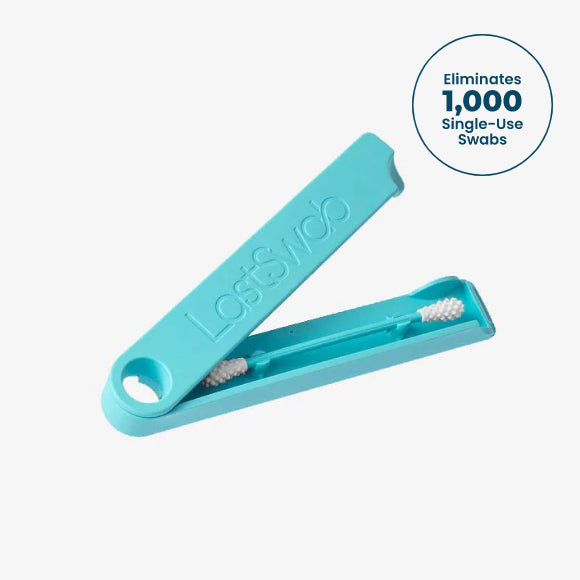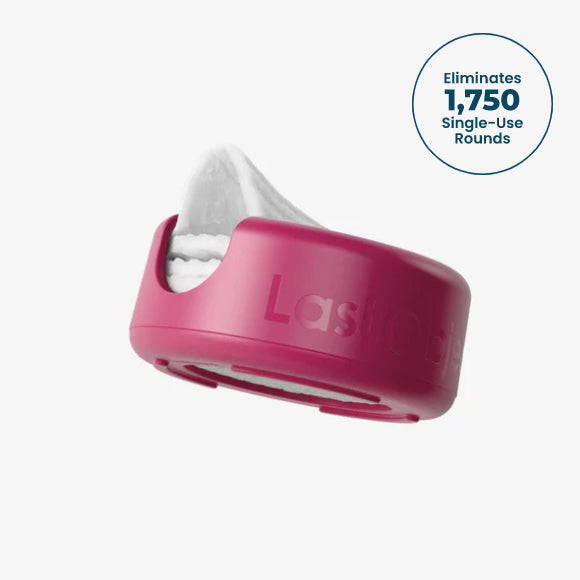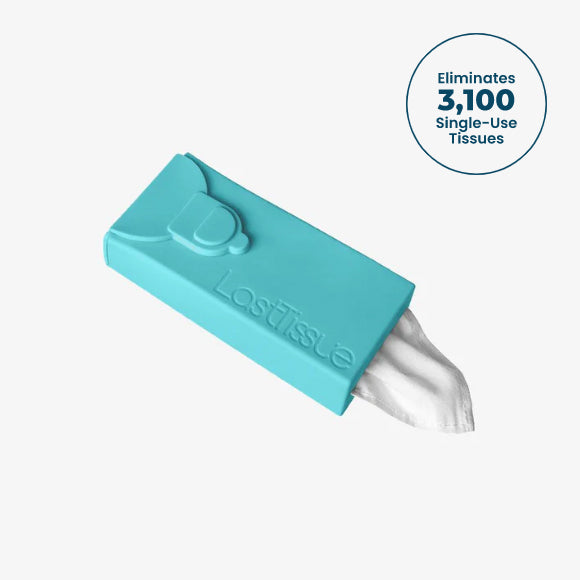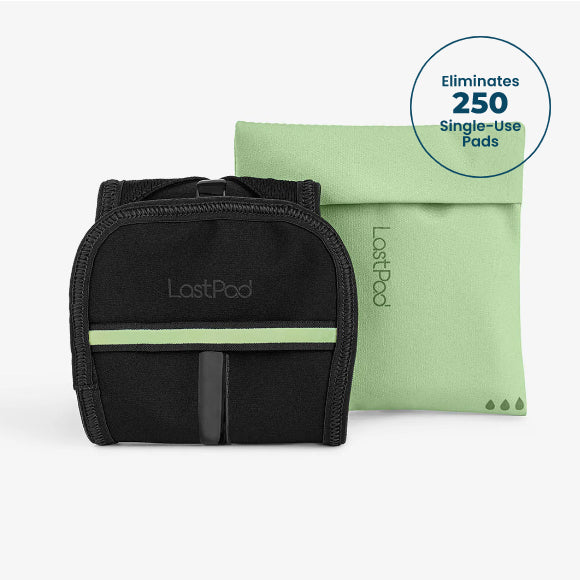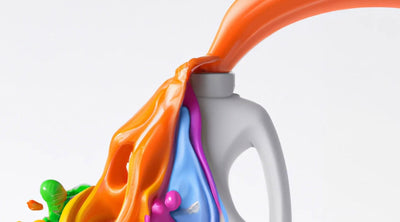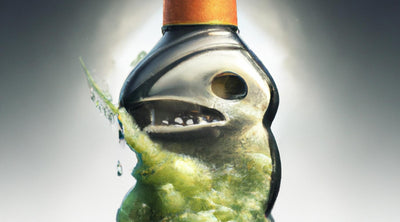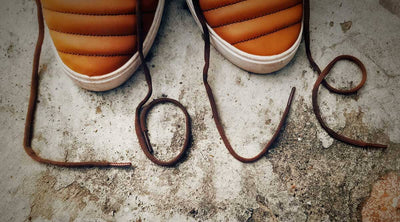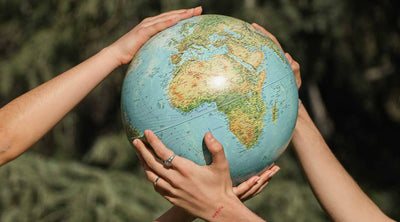Sustainability 101
What Is Wish Cycling & Should People Concerned About The Environment Do It?
25 November, 2021
Recycling is an excellent concept but that doesn’t mean it’s perfect. Seeking the best for the environment is great, but it’s very easy to do harm in your attempt to do good. A common mistake of doing this is by throwing away recyclable items without checking if they are recyclable or not. This is called wish cycling, and it can cause problems further down the recycling stream.
Read on to learn more about wish cycling and how to prevent it from occurring on your watch.
When it comes to recycling, we sometimes don’t know the rules. We might throw items in the recycling bin without knowing whether or not they can be recycled. Accidentally leaving leftover food in a pizza box and assuming that it can be recycled because it’s made of cardboard, is one such mistake. Cardboard boxes with grease or food scraps on them cannot be recycled. Attempting to do so can lead to recycling contamination that results in the whole recyclable batch being sent to landfill sites. Additionally, it’s important to remember that some types of plastic are not recyclable either, especially plastic bags or plastic wrap/ cling film.

There are a few reasons why wish cycling is a bad idea and should be avoided. We touch on a few of them below.
It Takes Time
Throwing leftover food in the recycling bin and hoping it gets recycled is a waste of time for everyone, including workers at the recycling facility. Non-recyclable items must be picked out by hand, which can be a messy, time-consuming job. Take a few extra seconds to rinse off leftover food or a minute to find out your local recycling rules to streamline the end-to-end process.
It Takes Money
Mixing non-recyclables with recyclables can cause significant damage to machinery. Not only will it take a long time to fix, but it is also expensive to repair. In the worst cases, the machinery can completely break down and need to be replaced, which could result in the recycling plant closing down.
Recycled goods also carry a certain value since many businesses rely on recycled goods. If non-recyclables mix with a perfectly recyclable batch, the overall quality takes a hit, thus making it less profitable.
It Creates Extra Waste
If 95% of materials that come through a recycling stream are recyclable and the other 5% consists of non-recyclables, the entire batch could become contaminated and end up in a landfill. This just creates extra, unnecessary waste.
Landfills will grow larger and recyclable materials coming back into circulation will reduce. Studies have actually shown that only 35% of waste is recycled in the USA, which can lead to waste management becoming an additional problem rather than being a solution.
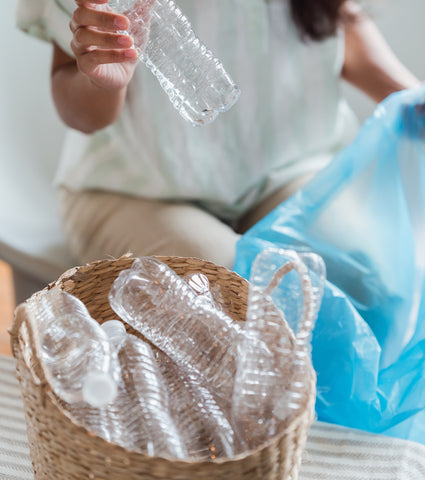
A lot of people are trying to recycle, which is certainly a good thing. But we all need to understand what can and cannot be recycled to prevent wish cycling in the future.
Here are a few tips that will help you avoid wish cycling.
Become Familiar With The Requirements Of Your Local Recycling Program
Local authorities have different recycling programs. Get yourself up to speed on what your local area can recycle. Machinery among recycling plants differs, meaning certain plastics may not be recyclable in your area.
Double-Check Before You Toss
Being mindful of what you’re throwing in the recycling bin makes a big difference. If you notice a lining of peanut butter at the bottom of the jar, scrub and rinse it before throwing it in with the rest of the recycling. Even a yogurt pot is perfectly recyclable, but if enough residue is still present, it will contaminate the entire batch.
For items made of different materials, such as a single-use coffee cup, be sure to separate the components (i.e. separate the plastic from the cardboard in the disposable coffee cup example) before throwing them into your recycling bin.
Remember That Not All Plastics Are Recyclable
Not all plastics are recyclable. Items like plastic bags and cling film cannot be recycled at all due to the complications they can cause when going through recycling machinery. Always check the sign and number imprinted on plastic packaging to ensure your local recycling plant accepts it.
Use Reusable Bags When Shopping
It’s a well-known fact that plastic bags are harmful to the environment. To reduce their impact on the planet, you should use reusable bags instead. Not only does this significantly reduce waste but it also benefits the functioning of recycling machinery for the long run. You can also make the most of bigger, stronger reusable bags that won’t break easily during your shopping because of a little extra weight.
Choose Recycled Plastic Or Glass Where Possible
Eliminating non-recyclable plastic or glass for future generations starts with us. Our consumption is on the rise, which makes it more important than ever to be mindful of what we are buying. Choose items that either have no packaging or are made from recyclable materials. Doing this is a great step towards making our world a cleaner place to live for those to come.
Master The Art Of Being A Responsible Recycler
Wish cycling can ultimately do more harm than good, which is why we need to find more responsible ways to recycle. When in doubt, contact your local recycling facility for all the information you need to do it properly. The world sure could use more responsible recyclers than idealistic ones.
Read on to learn more about wish cycling and how to prevent it from occurring on your watch.
What Is Wish Cycling?
Wish cycling arises when a person makes a conscious effort to recycle their household items by simply thinking an item can be recycled when in actual fact, it cannot.When it comes to recycling, we sometimes don’t know the rules. We might throw items in the recycling bin without knowing whether or not they can be recycled. Accidentally leaving leftover food in a pizza box and assuming that it can be recycled because it’s made of cardboard, is one such mistake. Cardboard boxes with grease or food scraps on them cannot be recycled. Attempting to do so can lead to recycling contamination that results in the whole recyclable batch being sent to landfill sites. Additionally, it’s important to remember that some types of plastic are not recyclable either, especially plastic bags or plastic wrap/ cling film.
Why Wish Cycling Is A Bad Idea

There are a few reasons why wish cycling is a bad idea and should be avoided. We touch on a few of them below.
It Takes Time
Throwing leftover food in the recycling bin and hoping it gets recycled is a waste of time for everyone, including workers at the recycling facility. Non-recyclable items must be picked out by hand, which can be a messy, time-consuming job. Take a few extra seconds to rinse off leftover food or a minute to find out your local recycling rules to streamline the end-to-end process.
It Takes Money
Mixing non-recyclables with recyclables can cause significant damage to machinery. Not only will it take a long time to fix, but it is also expensive to repair. In the worst cases, the machinery can completely break down and need to be replaced, which could result in the recycling plant closing down.
Recycled goods also carry a certain value since many businesses rely on recycled goods. If non-recyclables mix with a perfectly recyclable batch, the overall quality takes a hit, thus making it less profitable.
It Creates Extra Waste
If 95% of materials that come through a recycling stream are recyclable and the other 5% consists of non-recyclables, the entire batch could become contaminated and end up in a landfill. This just creates extra, unnecessary waste.
Landfills will grow larger and recyclable materials coming back into circulation will reduce. Studies have actually shown that only 35% of waste is recycled in the USA, which can lead to waste management becoming an additional problem rather than being a solution.
Tips To Avoid Wish Cycling

A lot of people are trying to recycle, which is certainly a good thing. But we all need to understand what can and cannot be recycled to prevent wish cycling in the future.
Here are a few tips that will help you avoid wish cycling.
Become Familiar With The Requirements Of Your Local Recycling Program
Local authorities have different recycling programs. Get yourself up to speed on what your local area can recycle. Machinery among recycling plants differs, meaning certain plastics may not be recyclable in your area.
Double-Check Before You Toss
Being mindful of what you’re throwing in the recycling bin makes a big difference. If you notice a lining of peanut butter at the bottom of the jar, scrub and rinse it before throwing it in with the rest of the recycling. Even a yogurt pot is perfectly recyclable, but if enough residue is still present, it will contaminate the entire batch.
For items made of different materials, such as a single-use coffee cup, be sure to separate the components (i.e. separate the plastic from the cardboard in the disposable coffee cup example) before throwing them into your recycling bin.
Remember That Not All Plastics Are Recyclable
Not all plastics are recyclable. Items like plastic bags and cling film cannot be recycled at all due to the complications they can cause when going through recycling machinery. Always check the sign and number imprinted on plastic packaging to ensure your local recycling plant accepts it.
Use Reusable Bags When Shopping
It’s a well-known fact that plastic bags are harmful to the environment. To reduce their impact on the planet, you should use reusable bags instead. Not only does this significantly reduce waste but it also benefits the functioning of recycling machinery for the long run. You can also make the most of bigger, stronger reusable bags that won’t break easily during your shopping because of a little extra weight.
Choose Recycled Plastic Or Glass Where Possible
Eliminating non-recyclable plastic or glass for future generations starts with us. Our consumption is on the rise, which makes it more important than ever to be mindful of what we are buying. Choose items that either have no packaging or are made from recyclable materials. Doing this is a great step towards making our world a cleaner place to live for those to come.
Master The Art Of Being A Responsible Recycler
Wish cycling can ultimately do more harm than good, which is why we need to find more responsible ways to recycle. When in doubt, contact your local recycling facility for all the information you need to do it properly. The world sure could use more responsible recyclers than idealistic ones.
MORE Sustainability 101 ARTICLES View all ›
Ready to make
the switch?
- Powerful Cleaning
- Dissolves Easily
- Skin-Friendly
- Eco-Friendly
- No Mess





